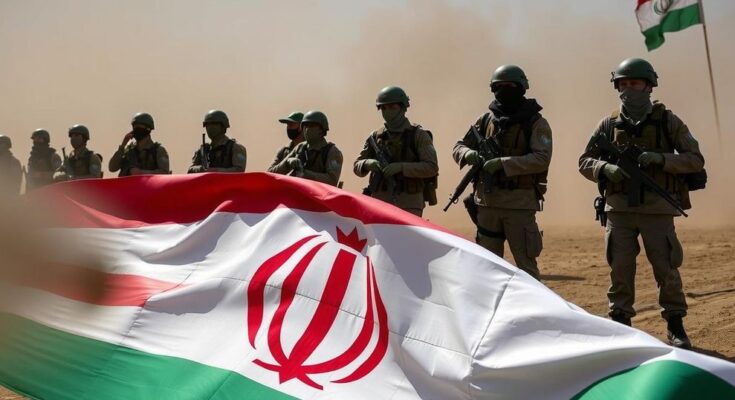The Iraqi Popular Mobilization Units reiterate loyalty to Iran amid reducing hostilities towards Israel, focusing on the new Syrian political landscape instead. Their leader, Faleh Al-Fayyad, emphasizes alliances with Iran, particularly in the wake of significant changes in Syrian leadership, which could impact Iraqi internal politics and Sunni and Kurdish relations.
Recent reports indicate that the Iraqi Popular Mobilization Units (PMU), also known as Hashd al-Shaabi, continue to express their allegiance to Iran, as affirmed in an article by the Iranian state media outlet IRNA. During a recent meeting in Diyala province commemorating the defeat of ISIS in December 2014, Faleh Al-Fayyad, head of the PMU, reiterated the group’s loyalty to their Iranian counterparts, notably to the late Lieutenant General Qassem Soleimani, who was instrumental in combating ISIS operations before his assassination by the United States in January 2020.
In light of shifting regional dynamics, the Iranian-backed militias have recently shifted focus from Israel to the evolving political landscape in Syria. This change of focus was highlighted during a meeting between the new Syrian leader, Ahmed al-Sharaa, and an Iraqi delegation, which included Hamid al-Shatri, the head of the Iraqi National Intelligence Service.
Furthermore, Hadi al-Amiri, leader of the Badr Organization, acknowledged the political shifts in Syria, expressing that they are not apprehensive regarding the new government but recognize potential ramifications for Iraq. Meanwhile, Sunni leaders in Iraq have indicated that these changes could be beneficial for their community, while Kurdish political factions are attentive to developments in eastern Syria, which may lead to a more cohesive governance structure that includes diverse Kurdish voices.
The Popular Mobilization Units were established in Iraq in 2014 to combat the threat posed by ISIS, and they have since developed strong ties to Iran. Their allegiance has been particularly pronounced given the support they received from Iranian military leaders, which has raised concerns regarding Iran’s influence in Iraq. With the recent changes in Syria’s leadership, the implications for Iraqi stability and the relationships between various political factions are under scrutiny, especially regarding Sunni and Kurdish interests.
The Iraqi Popular Mobilization Units maintain their allegiance to Iran amid shifting regional dynamics, particularly the political changes in Syria. Their commitment to Iranian leadership remains significant as they pivot away from concerns of Israeli aggression and focus on the emerging challenges posed by Syria. This evolving situation could potentially reshape the political landscape in Iraq, especially regarding Sunni and Kurdish political aspirations.
Original Source: www.jpost.com




